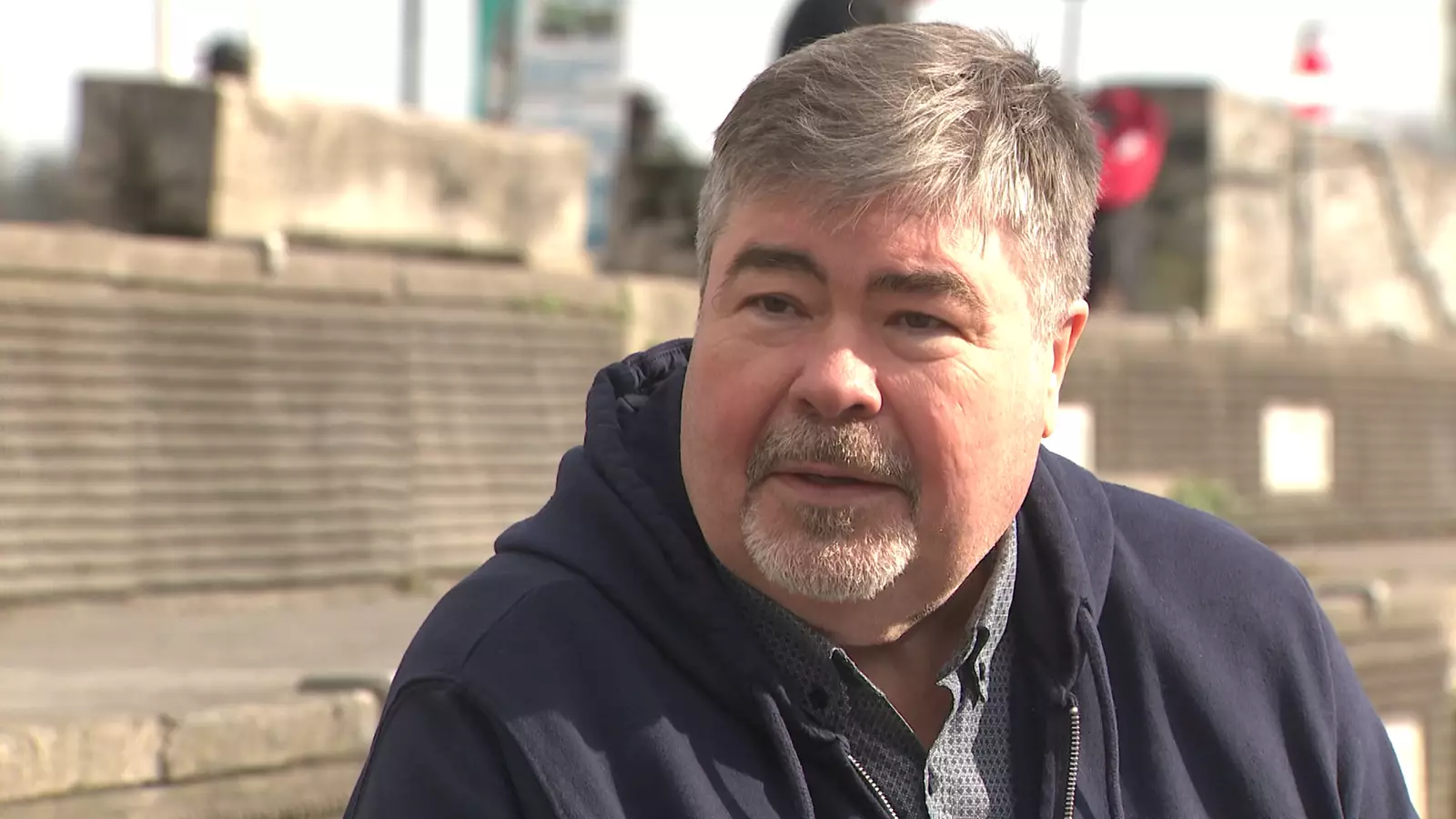As the world collectively reeled under the impacts of the COVID-19 pandemic, individual stories of survival and struggle punctuated the overwhelming statistics. One of the most poignant tales comes from Mark Hammersley, a man whose experience reflects not only the personal battle against a relentless virus but also the societal neglect of health vulnerabilities. Standing bright and composed in the Welsh sun years after his battle in the ICU, Mark’s journey from despair to hope serves as a pointed reminder of the human spirit’s buoyancy amid adversity. Yet, beneath the surface of resilience lies a complex narrative about coming to terms with one’s mortality and the systemic failings that allowed many like Mark to approach the precipice of death.
Mark’s harrowing experience began abruptly in October 2020 during the storm of the second COVID wave. Admitted to Warrington Hospital after serious health deterioration, he faced a most critical period—one where survival was anything but guaranteed. We must reflect on the gravity of that moment, when a man, seen by many as just another patient, grappled with mortality, breathing through a CPAP machine as machines beeped names forgotten in the rush of life. This emotional turmoil not only speaks to Mark’s personal battle but also illustrates the chaotic and often flawed healthcare responses to an unprecedented public health crisis.
Risk Factors and Reality Check
Mark’s story serves as a catalyst for broader discussion about health disparities. Diagnosed with diabetes and confronting issues of obesity, Mark was part of a demographic often sidelined in public health messaging. The government’s focus during the pandemic often veered towards generic guidelines, ignoring the nuanced realities faced by individuals with pre-existing conditions. In being forced to shield for an extended period, Mark highlighted the tragic irony of safeguarding vulnerable populations while risking their mental and physical health. Not only were those marked by these risk factors battling a virus, but they were also conscripted into isolation—deepening their vulnerability.
The doctors’ decision to use a CPAP machine instead of a ventilator was a make-or-break moment, letting us reflect on the inherent gamble that characterizes healthcare in crisis. This point of medical intervention represents not just an anecdotal turnaround in treatment tactics but a broader commentary on how desperately needed quick decisions can bring forth troubling ethical questions. Where does the line lie between risk and scientific progress? In Mark’s case, the success of CPAP is a triumph; yet it remains a stark reminder that many others would not be so lucky.
Survival Amidst Suffering
Mark’s continued struggle post-recovery is another significant aspect of his journey. Despite standing tall five years later, he lives with the long-term repercussions of COVID, grappling with emotional and physiological scars that will persist indefinitely. The acknowledgment of “muscular pain” and the challenge of simple tasks like putting on a shirt poignantly encapsulates how the fallout from the virus extends far beyond physical treatment. The societal grief that lingers in COVID’s wake must incorporate the notion of long COVID—an experience marked by chronic symptoms and pervasive mistrust in the healthcare system that failed to fully sever the infection’s grip on lives.
The death of a fellow patient—a contrasting figure to Mark, filled with hope yet equally confronted by the finality of illness—emphasizes the cruel randomness of fate. With one person thriving post-ICU care and another succumbing, there lies a harsh reminder that survival isn’t guaranteed, nor is recovery a linear process. We are left questioning not only the efficacy of treatments employed but the ethical implications of those who survive versus those who don’t.
A Call for Reflection and Action
As the UK approaches the five-year anniversary of its pandemic declaration, we are served with a dual opportunity for reflection. While the nation commemorates lives lost and sacrifices made, there is a necessity for introspection on how society views those with pre-existing conditions. It is disheartening that amidst remembrance, there still exists a gaping void in concern for those who continue to struggle with long-term ramifications. The day of tribute for frontline workers should extend to recognizing the systemic inadequacies that have perpetuated health inequities.
In grappling with lessons from Mark’s experience, we must push for a transformative shift in public health priorities—one that embraces inclusivity and foresight in caring for our most vulnerable populations. The story is not solely about survival; it’s an urgent plea for a health landscape that prevents the avoidable tragedies of tomorrow by valuing every individual’s health as paramount.


Leave a Reply